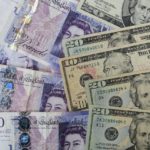Gold fell on Wednesday as the US dollar gained for a second day, buoyed by a weak euro, and as four-week high prices limited demand. Silver, platinum and palladium fell.
Comex gold for settlement in December fell by 0.87% by 7:51 GMT to $1 223.5 per troy ounce, having ranged between $1 233.3 and $1 222.1 during the day. The precious metal rose for a second day on Tuesday and settled 0.35% higher at $1 234.3, having risen to an intraday high of $1 238.6 an ounce, the highest since September 17th.
Gold retreated after two days of gains as prices touching the highest levels in four weeks deterred purchases, while a strong dollar also helped push prices lower.
The US dollar index, a gauge of the greenbacks performance against a basket of six counterparts, rose for a second day today, boosted by a weaker euro. Major EU economies posted overall downbeat inflation data, while the Eurozones industrial production contracted in August both on monthly and year-on-year basis. A gauge of investor confidence for the single currency bloc fell for a tenth month, while both current conditions assessment and economic sentiment in Germany were also much worse than expected.
The US dollar index for settlement in December traded at 86.030 at 7:51 GMT, up 0.10% on the day. Prices ranged between a daily high of 86.130, the strongest level since October 7th, and 85.965. The contract settled 0.25% higher on Tuesday at 85.941.
Although the downbeat data strengthened the US dollar, it also put a floor under gold as growing economic uncertainties tend to spur safe-haven demand.
Federal Reserve Vice Chairman Stanley Fischer said on October 11th that weaker-than-expected global growth could force the Fed to remove accommodation slower than otherwise. He said that the central bank won’t raise interest rates until the US economic growth has advanced sufficiently and emerging markets could digest the interest rate hike. An extended period of rock-bottom interest rates would benefit gold as a non-interest-bearing asset, while pushing the dollar down.
Yang Xi, an analyst at Yongan Futures Co., said for Bloomberg: “It remains to be seen how the U.S. will be affected by a slowdown in other major economies and as a result, the Fed’s willingness to loosen monetary policy. We expect prices to be volatile as higher U.S. rates will weigh on gold, while worries about a global slowdown will boost haven demand.”
Physical demand from the metals top two buyers also lent some support. Indias gold imports almost doubled in September to $3.75 billion from a month earlier, ahead of the nations wedding and festival season. In China, the leading global consumer, physical trading on the Shanghai Gold Exchange remained very active with premiums hovering around $4 per troy ounce.
Market players now eyed upcoming data from the US, including producer inflation and retail sales, to gauge the US economys momentum and gain possible clues of the Federal Reserves interest rate hike timing.
Assets in the SPDR Gold Trust, the biggest bullion-backed ETF and a major gauge of investor sentiment towards the metal, remained unchanged at 761.23 tons on Tuesday, after they rose on Monday for the first time since September 10th.
Daily pivots
According to Binary Tribune’s daily analysis, Comex December gold’s central pivot point stands at $1 234.7. If the precious metal breaks its first resistance at $1 238.2, its next barrier will be at $1 242.1. In case the second key resistance is broken, the yellow metal may attempt to advance to $1 245.6.
Gold breached the days S1, S2 and S3 support levels, which stood at $1 230.8, $1 227.3 and $1 223.4 respectively.





